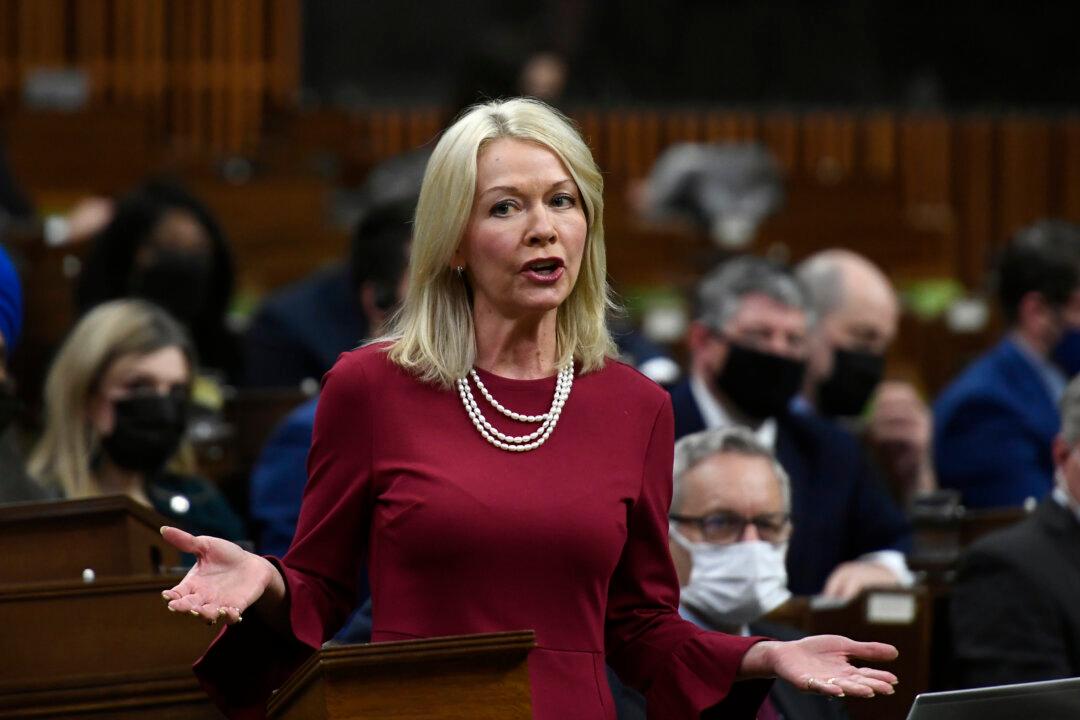Interim Conservative Party Leader Candice Bergen says the Liberal-NDP agreement to support the Liberal government is “little more than backdoor socialism” and criticized the deal as a power grab for Prime Minister Justin Trudeau.

Interim Leader of the Conservative Party Candice Bergen rises during Question Period in the House of Commons on Parliament Hill in Ottawa on Feb. 10, 2022. Justin Tang/The Canadian Press
|Updated:




